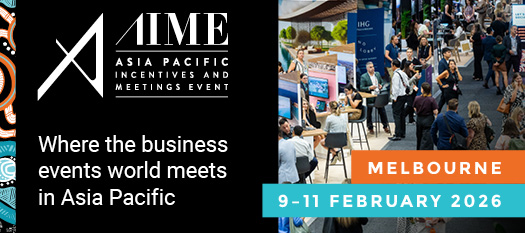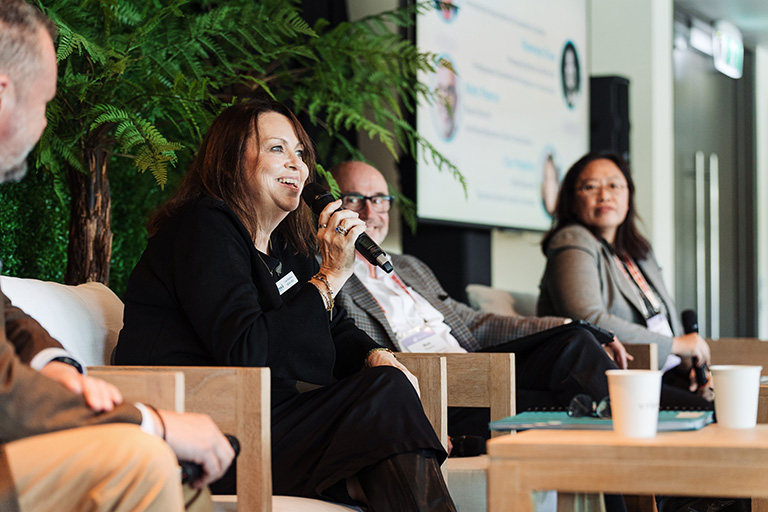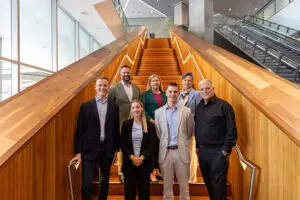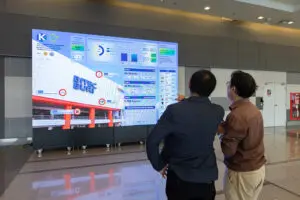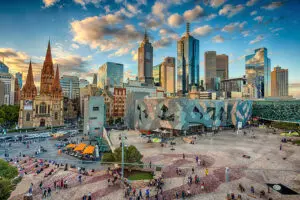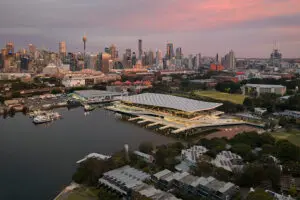If the global meetings industry was a country, it would be the 14th largest in the world, representing a larger gross domestic product (GDP) than Australia or Spain, according to Sven Bossu, CEO of the International Association of Convention Centres (AIPC).
Bossu was one of four industry leaders on last week’s panel, delving into potentially prickly topics at MEETINGS.
“GDP is actually a really good indicator of how our industry is going to evolve from a revenue perspective,” he said, adding that it looked positive in the long term.
Other figures referenced during the panel session suggested meetings were moving out of the United States, in favour of Canada.
Florence Chu, the APAC managing director for the Professional Convention Management Association (PCMA), said the challenge of the current geopolitical situation in the US was “the uncertainty that we don’t know when is the end point to this”.
Earlier Bossu had suggested the world’s geopolitical landscape had permanently evolved and the world was in a “new reality”.
Chu cited the latest data from US Travel Association which revealed an overall decline [in travel to the US], which was “significant, but not disastrous”.
“What’s going to be really interesting is the quarter three numbers that will be coming out soon. We do think that it’s going to continue to spiral downwards,” she said.
Chua went on to flag a new development at the recent Association of South East Asian Nations (ASEAN) meeting in Kuala Lumpur, Malaysia.
“For the first time ever, there was a joint summit between ASEAN, China and the Gulf States – so this is a classic example of what the US has accelerated and triggered,” she said.
She also commented on the rise of Halal tourism in Asia, which she says is rising rapidly but does not appear to be on the radar in New Zealand as much as it should be if the country wants a bigger share of the Asian market.
While Canadians are boycotting travel into the USA, as mentioned by more than one panellist, head of Business Events Industry Aotearoa (BEIA), Lisa Hopkins, raised another associated business events impact.
“Associations…are also considering, does the United States now align with the values of our organisation? And if the answer is no, then we are going to look elsewhere,” said Hopkins.
Hopkins also posited that perhaps New Zealand and Australia had an opportunity in the current climate to “position ourselves as an alternative” – an idea which was endorsed by Bussu.
“There is a massive opportunity, especially when it comes to the association business, to bring it to Australia and to New Zealand,” said the AIPC head.
Meanwhile, Matt Pearce, Australian Business Events Association (ABEA) board member, noted a US Senate Committee proposal that would reduce spending on Brand USA – the United States’ tourism brand – from $100 million to $20 million.
“They are clearly in turmoil and that gives us opportunity,” said Pearce.
Despite the aforementioned turmoil, Pearce said there appeared to be much positivity throughout the industry, as evidenced through the three major international industry trade shows that have taken place since February.
“I get a bit frustrated with some of our own rhetoric in some of what we talk about because I think we’re still in a boom time,” he said.
“I think we’re still in a really, really strong opportunity and growth phase.”
Perhaps it was inevitable that the conversation would move from one “elephant in the room” to another, as Hopkins turned the discussion to AI.
“I’m going to kick off by saying I think AI is bloody awesome, great, I really do and I think it’s going to be a bit of a game changer for our industry,” she said.
“Our industry has to put more focus and attention on a couple of things,” she went on.
“How we interact with people, having more time to do that, having more time to generate better business and executing and delivering on that.
While Hopkins suggested AI would take away some of the more menial tasks – and by implication allow more time to focus on in-person interactions, generating better business and the like – she raised an important caveat.
“The training around AI is absolutely crucial,” she said, adding that BEIA has recently done some survey work, asking the New Zealand business events industry specifically about AI.
“While there was a general enthusiasm for AI to be incorporated into day-to-day tasking that may happen within our industry, what was shocking was the lack of training that was going to be associated with that.”
Presenting the PCMA perspective, Chu said it was “a technology that’s here to stay…we need to get the whole industry onto the bandwagon earlier than later”.
“We as an industry are pretty good with staying away from technology because we love our human connections,” she said.
Chu said PCMA had collaborated with a tech company to create a Spark AI application that is designed by event professionals for the industry.
Sustainability was also a hot topic on the panel, with Bossu suggesting that many organisations focused on the ecological aspect but underestimated that sustainability has three facets: social, ecological and economic.
“Venues who get that balance between the three right will have a great story to tell, but I’m not really seeing a lot of that for the moment in convention centres,” he said.
“I see them focusing on ecological because there’s a business case behind it, a commercial advantage to that. But creating that true balance between the three aspects…I haven’t heard that much about.”



